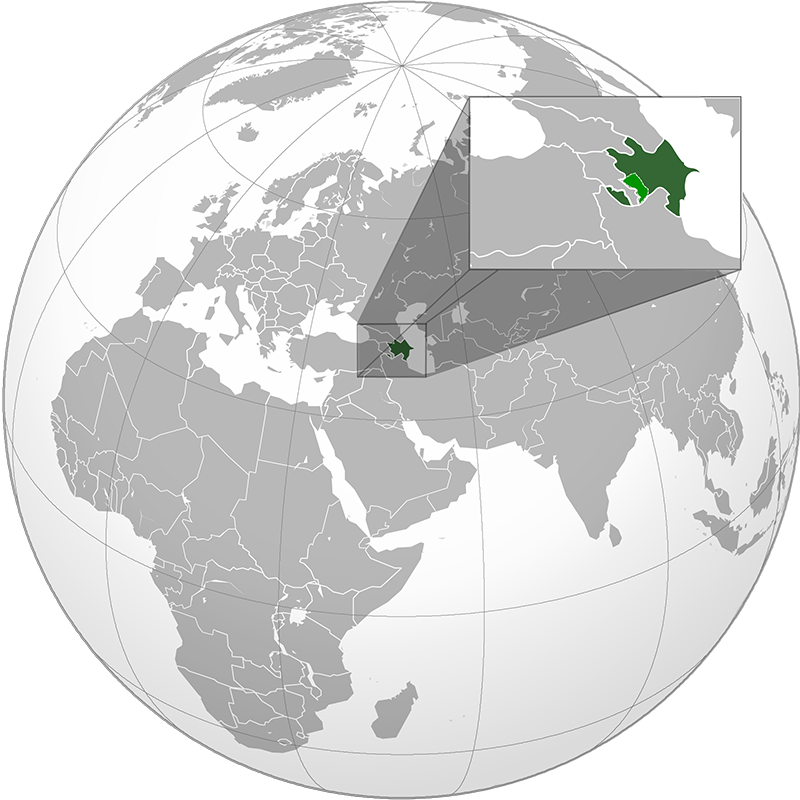
- Population:
- 10,337,000
- Religion:
- Islam
Azerbaijan's history dates back to ancient civilizations, including the Caucasian Albanians. It was later influenced by Persian, Arab, and Mongol conquests. In the 19th century, it became part of the Russian Empire, and following the collapse of the Russian monarchy, the Azerbaijan Democratic Republic was established in 1918. However, it was absorbed into the Soviet Union in 1920. Azerbaijan regained independence in 1991 after the USSR dissolved. Since then, it has developed a strong economy, mainly due to its vast oil reserves, while also experiencing conflicts, particularly over the Nagorno-Karabakh region.
Azerbaijan, officially the Republic of Azerbaijan, is a transcontinental country located at the boundary of Eastern Europe and Western Asia. It is bordered by the Caspian Sea to the east, Russia to the north, Georgia to the northwest, Armenia to the west, and Iran to the south. Covering an area of approximately 86,600 square kilometers, Azerbaijan has a population of around 10 million people. The capital and largest city is Baku, situated on the Caspian Sea's coast. The official language is Azerbaijani. Azerbaijan's landscape is diverse, encompassing the Caspian Sea shoreline, the Greater and Lesser Caucasus mountain ranges, and flatlands. The country declared independence from the Soviet Union in 1991. Its economy is significantly influenced by oil and natural gas production, alongside agriculture and services. Azerbaijan is a member of the United Nations, the Organization of Islamic Cooperation, and the Commonwealth of Independent States.






